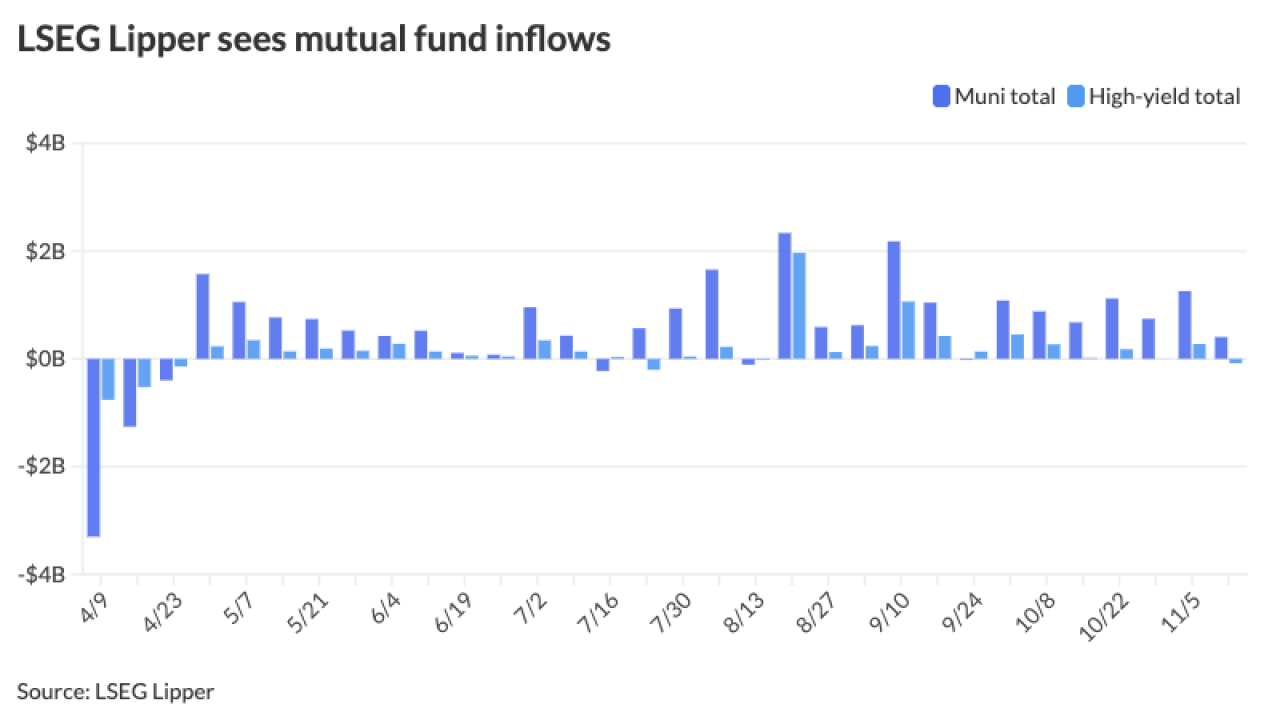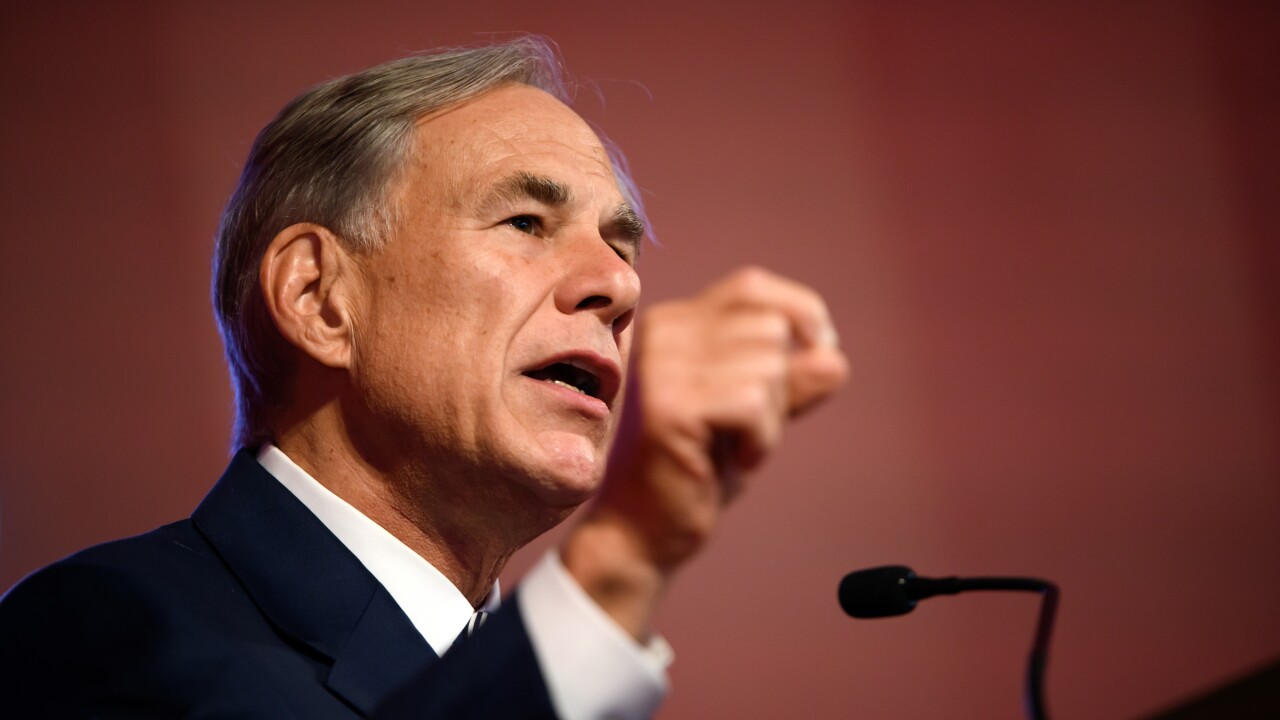
CHICAGO -- George Pitt, a bond lawyer who pioneered early tax-exempt healthcare financing and was revered by a generation of Chicago attorneys, died earlier this month of heart failure. He was 77.
"His legacy is essentially the lawyers and bankers he mentored. It's so prolific in Chicago," says John Cummins, a bond attorney at Sanchez Daniels & Hoffman LLP, whose friendship with Pitt dates back to their days in law school at Northwestern University.
Pitt followed his groundbreaking career as a bond attorney, in which he did pioneering work in several areas, with a second act as an investment banker before returning to public finance law at the end of his career.
Pitt graduated high school in 1956 and served in the Army as a first lieutenant. In college, he majored in the classics, laying the groundwork for his quick quotation of poets and scholars so well-remembered by his colleagues.
He graduated from law school in 1963 and joined Chapman and Cutler LLP where he worked on industrial revenue bond issues.
After just five years, Pitt wanted to strike out on his own, with some help from two Chapman colleagues -- Marvin Leiter and Michael Borge. Leiter left a year later to work on his own.
Chapman had a monopoly on local business but the upstart firm slowly carved its niche and grew to more than a dozen lawyers. Eyeing a merger that would keep Borge & Pitt group intact, the firm combined in 1987 with what's now Katten Muchin Rosenman LLP. There Pitt stayed until 1998 when, looking for a new challenge, he turned to investment banking.
"I had an entrepreneurial itch I had to scratch," he told The Bond Buyer in an interview later in his career.
Pitt joined First Chicago Capital Markets Inc. as a healthcare banker. That firm soon evolved into Banc One Capital Markets where he was elevated to managing municipal originations, a position he accepted reluctantly, as he preferred seeing clients to managerial meetings "from dawn to dusk," he said in the interview. He moved on after a reorganization in 2000.
Pitt quickly landed at UBS where he worked for four years as a healthcare banker. He then moved to Morgan Keegan in 2004 to help the firm establish its presence in the Midwest.
After his decade-long banking foray, Pitt returned to his legal roots, joining Greenberg Traurig LLP in 2007. He had struggled with what he believed was the more competitive and political nature of banking, but Pitt said in an interview at the time his decade was well-spent.
"I learned something valuable from each of them," he said, adding that the positions forced him to become more aggressive. "And when you are laid back like myself, you can use a little bit of that."
He retired in 2009.
Pitt's many professional accolades reached far beyond his groundbreaking work in public finance law. They extend to an appreciation for his mentorship, admiration for his attention to finest of details and ethics, personable nature, and flare for the scholarly email.
His work touched many areas of tax-exempt bond law. In his early days, he ran test cases with state supreme courts on industrial revenue bonds and later was at the forefront in establishing tax-exempt healthcare financings, and had a hand in establishing the templates for master trust indentures.
"George served as bond counsel and underwriters counsel with Ziegler on many early hospital issues. He was so creative and proactive in those early years of healthcare. There were no templates and obligated groups until the early 1980s, so George was always on the leading edge," says Don Carlson, vice chairman at Ziegler.
"Aside from his smarts, creativity and humor, he was a man of very high ethic, always wanting the best result for the hospital borrower," Carlson says.
Always at the forefront for Pitt was the craft that went into a transaction, his former colleagues say. He viewed the bond market's integrity as a whole as being at stake.
The mentorship memories are especially acute for those lawyers who joined Borge & Pitt early in their careers.
"It was a privilege to go to a meeting and hear him pontificate," recalls Renee Friedman, a partner at Katten Muchin. Fresh out of law school, Friedman gave up a position with the Justice Department when told she couldn't pass up the opportunity to work under a lawyer of his caliber.
His tutelage extended beyond his own colleagues.
"His generosity of spirit in helping other lawyers being better bond lawyers is renowned" but he always did it in a subtle, gentle way and never with the intent to show off, says Janet Goelz Hoffman, a partner at Katten Muchin and Borge & Pitt alum.
Milton Wakschlag, a partner at Katten Muchin and Borge & Pitt alum, recalls Pitt's pride in the financings he worked on from O'Hare International Airport to hospitals and other institutions throughout Chicago and beyond its borders.
"He had a pride in providing for public infrastructure," he says of his mentor, recalling how Pitt would say that mergers and acquisition were just shuffling around wealth and didn't hold a candle to public finance.
Investment bankers offer similar tales.
"The time he gave me was just extraordinary," says Dave Abel, a banker at William Blair & Co. who worked with Pitt at the former First Chicago Capital Markets and UBS, remembering how Pitt labeled failures "instructive course corrections."
Part of his mentorship included pulling frequently from his vast library of quotes.
"When we would get off a particularly contentious call where someone seemed to be behaving rude or badly or not listening to logic, George would quote Macbeth by William Shakespeare. 'It is a tale told by an idiot, full of sound and fury, signifying nothing,'" recalls Jerry Berg, a healthcare banker at RBC Capital Markets who worked with Pitt at UBS.
"It was George's way of trying to encourage me not to let things get me down and it was his lyrical means of building me up to stand my ground." Berg says.
Pitt's humility and friendliness, no matter their rank in profession, left a lasting impression with colleagues.
"He knew the names of the copy person and the librarian and treated everyone with respect," Friedman says.
"He would stop the Romanian janitor and tell him the Romanian joke he just heard," Wakschlag adds. Pitt always had a joke at the ready -- some off-color, all drawing laughs no matter how many times they were repeated.
Pitt loved food, especially during long lunch conversations with friends and colleagues where the topics ranged from arcane tax regulations he could recite by number to one of his particular idols -- Winston Churchill.
He was a boatsman who frequented the waters of Lake Michigan and had a deep affection for convertibles and Ronald Reagan.
Pitt was born in Chicago to parents of Greek descent and during his middle school years moved to the Northwest Indiana lakeshore community of Beverly Shores. It was during those years he had his eye on a schoolmate, Pam Pittsford, but she says she resisted his attentions because "he was so smart" and Pittsford feared she would "disappoint him."
The two kept in touch and at their 30-year reunion reconnected. They were soon married and spent the last 30 years together.
Pitt died in his LaPorte, Ind. home on March 5. He had suffered from several chronic conditions, including Parkinson's.
Pitt is also survived by his two daughters from his first marriage, Margaret Pitt Margariles and Elizabeth Pitt Tilson; stepdaughter Debra Carpenter; two stepsons, Michael Karm and Gregory Karm; nine grandchildren, a brother and two sisters.
Contributions may be made to the Share Foundation for the Handicapped, P.O. Box 400 Rolling Prairie, IN 46371.
A memorial service will be held on Saturday, April 23, at 11 a.m. at St. Timothy Center at Sharing Meadow, 6357 N 300 E, La Porte, IN 46350.





